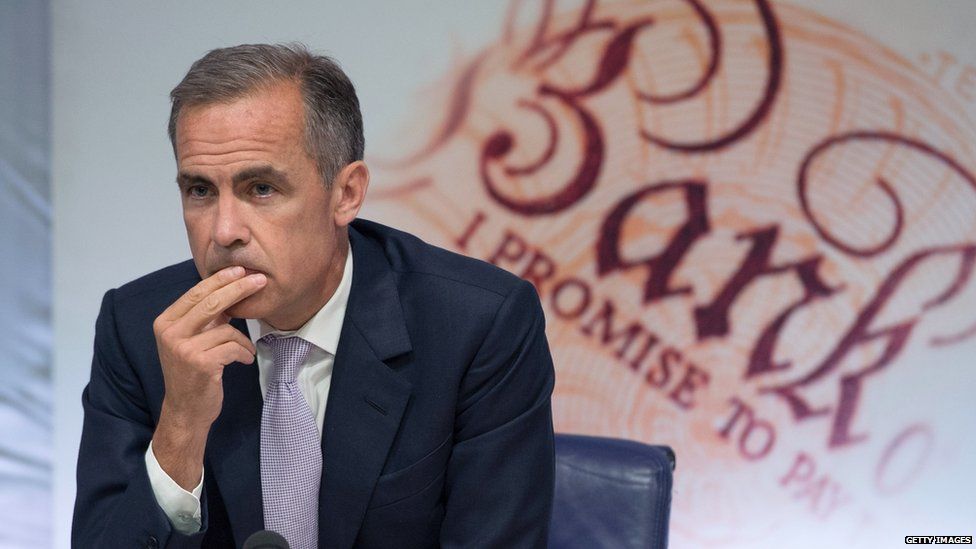Carney: UK interest rate rise on agenda despite China woes
- Published

The decision on when to raise interest rates is still likely be at the top of the Bank of England's agenda at the turn of the year, the governor said this afternoon - even though he acknowledged that China's economic slowdown means the world's second biggest economy is likely to be a drag on growth in the whole world.
Mark Carney, speaking at the annual Jackson Hole convention in the US of central bankers and economists, said: "The prospect of sustained momentum in the UK economy and the gradual firming of underlying inflationary pressures will likely put the decision as to when to start the process of gradual monetary policy normalisation [or interest rate rises] into sharper relief at the turn of this year."
Which is another way of saying that he stands by the economic timetable for possibly raising rates that he set out in Lincoln Cathedral on 16 July.
He was giving his first response to the rout in shares on the Shanghai stock market over the past few days - a rout which for a couple of days infected stock markets all over the world.
Mr Carney said an interest rate rise was by no means inevitable in the opening months of 2016.
But he wanted to dampen speculation that "developments in China" have changed "the process of rate increases from limited and gradual to infinitesimal and inert".
What the Bank of England has to weigh up, he said, was whether domestic demand - spending by British consumers, investing by British investors - was strong enough to offset the potential for further "material slowing of growth in China and more broadly in non-Japan Asia", coupled with the deflationary impact of falling currencies of China and other emerging markets.
Although Wall Street and European stock markets have since recovered from last week's shocks, central bankers and economists are concerned that a pronounced deceleration of growth in China is having a big negative impact on other emerging market economies, and therefore on the prosperity of the world as a whole.
There has therefore been widespread speculation that the US Federal Reserve and the Bank of England would delay the first rises in interest rates since the great crash of 2008 in the US and UK.
Mr Carney made clear that the decision on whether to increase the so-called Bank Rate - the interest rate set by the Bank of England - by 0.25% from 0.5% would depend on economic data between now and then.
But he was making the significant point that he did not believe that last week's China shock made it inevitable that there would be a material delay in interest rate rises.
In that sense he appeared to echo what the vice chairman of the Fed, Stanley Fischer, said yesterday about the possible course of US interest rates - when he said that a rise in US rates could still happen in September.
All that said, Mr Carney and Mr Fischer - although influential - have only one vote each on the interest rate decision, and not all their colleagues will be as sanguine as them that it is sensible to keep open the option of early interest rate rises, in view of the weakening in the global economy.